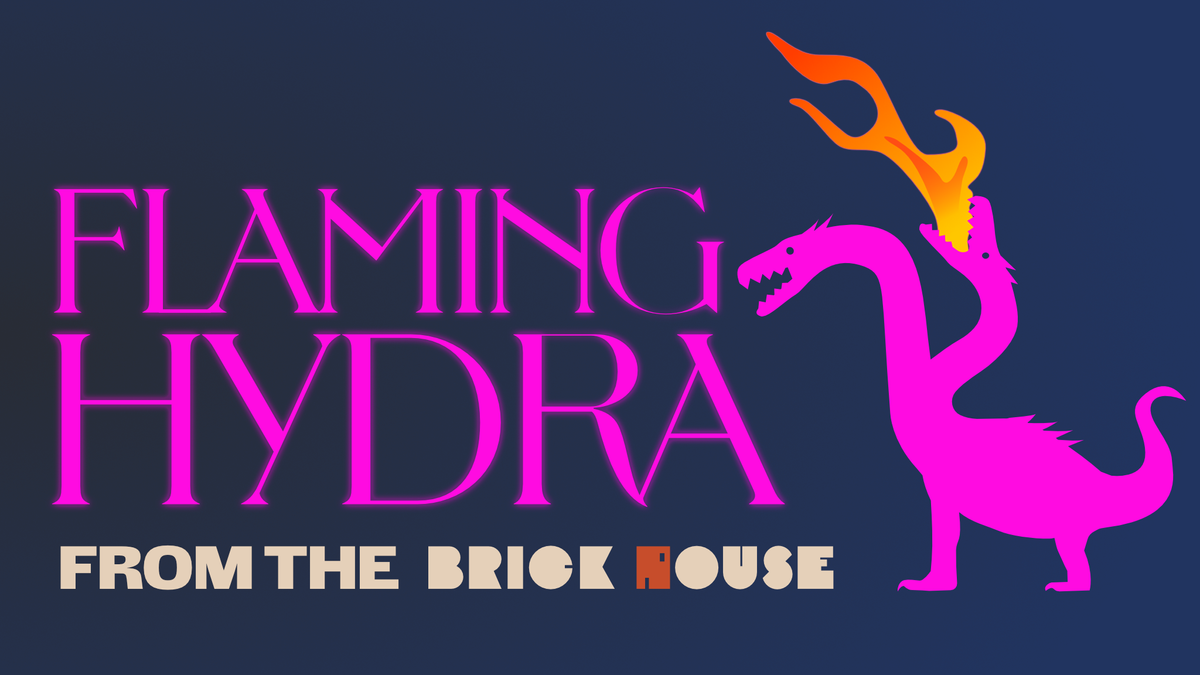
I’m part of a new writer-owned collective that just went online. It’s called Flaming Hydra and features some incredible writers, plus me. The first issues feature work by David Roth, Kim Kelly, Osita Nwanevu, and more:
My first piece will be coming out soon. It’s very different than the fare you get in The Racket. I think you’ll like it!
Also, speaking of The Racket, I’ve been losing some of you in the transition to the new platform. Please don’t go! If you do go, please drop me a line about why you’re leaving. But better yet, stay; and in fact, consider supporting a writer whose work means something to you with a premium subscription:
And please, spread the word.
I’ve been hard on the president and his party — deservedly so, I think — for both their fulsome backing of Israel’s humanitarian catastrophe in Gaza in ways that are not only immoral on their own, but that could lead to a regional war and fracture the Democratic coalition at a time of real authoritarian threat.
It’s also important to give credit where it’s due. Yesterday, Biden announced the U.S. is imposing financial sanctions against four Israeli settlers who have led riots or otherwise engaged in violence against Palestinian civilians and Israeli peace activists in the West Bank. The order cuts them off from the U.S. financial system, traveling to the United States, or engaging in commerce with people in the United States. One of them, 29-year-old David Chai Chasdai, helped lead the riot against the West Bank village of Hurawa just before Purim last year. (I wrote about that atrocity at the time.)
Also sanctioned are Einan Tanjil, 21, whom the State Department alleges attacked Palestinian farmers and Israeli activists “with stones and clubs” and Shalom Zicherman, 32, who was caught on camera trying to break into the cars of Israeli activists in the West Bank, injuring two. The fourth, Yinon Levi, 31, allegedly engaged in behavior that sounds like the stories my grandparents told about the Cossacks who attacked their family shtetls in the Russian Pale of Settlement: driving into the Palestinian hamlet of Susiya on a tractor and, according to the New York Times, “participated in the destruction of olive trees, crops and water wells, prompting residents to flee the village.” Levi, the Times notes, was “accompanied by Israeli soldiers” who so far have escaped American condemnation.
Biden’s executive order made some big, belated nods toward reality: that “the situation in the West Bank — in particular high levels of extremist settler violence, forced displacement of people and villages, and property destruction — has reached intolerable levels” and that it constitute “a serious threat to the peace, security, and stability of the West Bank and Gaza, Israel, and the broader Middle East region.” As if on cue, hours after the order was published, Israeli forces reported intercepting a missile fired by Iranian-backed Houthi rebels toward the Israeli Red Sea beach town of Eilat.
Some are no doubt going to dismiss this round of sanctions as an insufficient or self-interested gesture. (The Times plays up the cynicism in its coverage, noting in the subhead of its story that Biden’s order serves in part as “a message to Arab Americans, a key part of the political coalition the president needs to be re-elected.”) It also can’t be missed that the sanctions address violence in the West Bank, not Gaza. And that they target four heretofore unknown rank-and-file settlers, as opposed to far-right Israeli officials like Itamar Ben-Gvir and Bezalel Smotrich, who openly cheer on settler aggression. (Ben-Gvir personally represented one of the sanctioned four, Chasdai, in court in 2013, when he was arrested for assaulting a taxi driver, the Times reported.)
And, sure, it may be a relatively small gesture on its own. But the Israeli media is reading the executive order as significant. Haaretz called it “historic” and a “game-changer,” one with “the potential to irreversibly impact Israel's settlement enterprise and its access to U.S. financial institutions, its fundraising, relations between the two countries, and more.” Ben Samuels wrote from Washington:
The statement was a rare admission by the U.S. government – let alone the president himself – that Israeli actions are provoking tensions external to the Israeli-Palestinian conflict.
And not just “provoking tensions” either. The State Department’s language is stark: “The Executive Order establishes U.S. authority to issue financial sanctions against those directing or participating in certain actions including acts or threats of violence against civilians, intimidating civilians to cause

